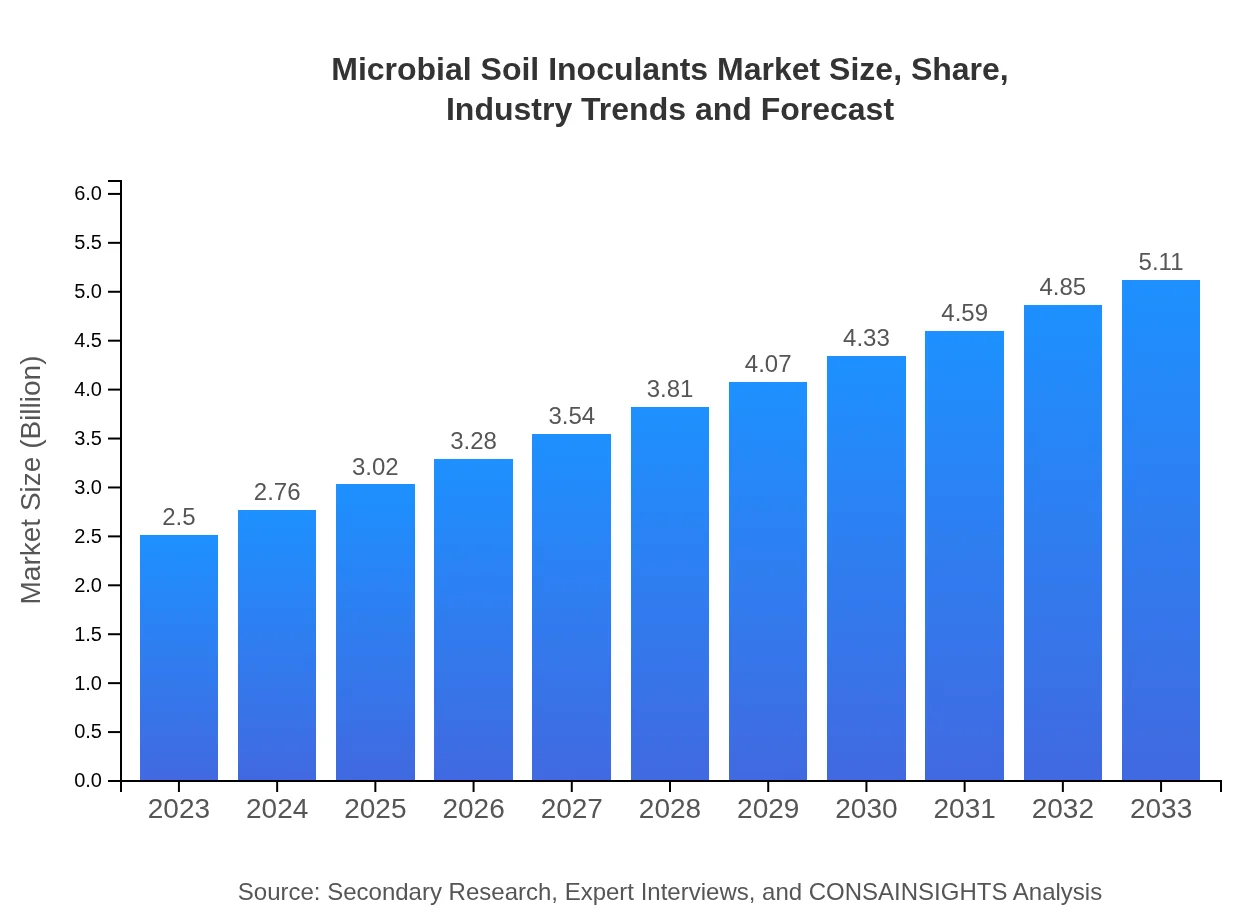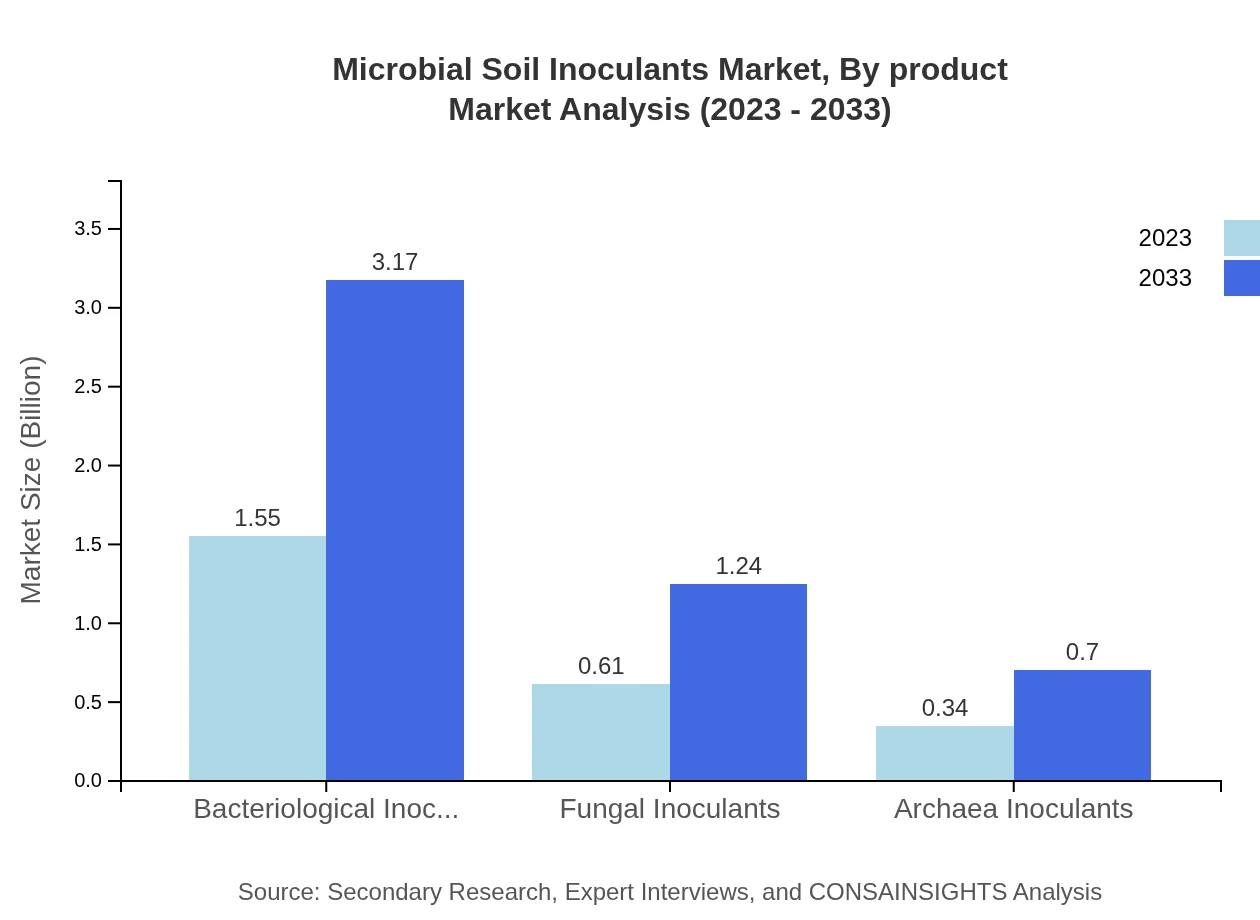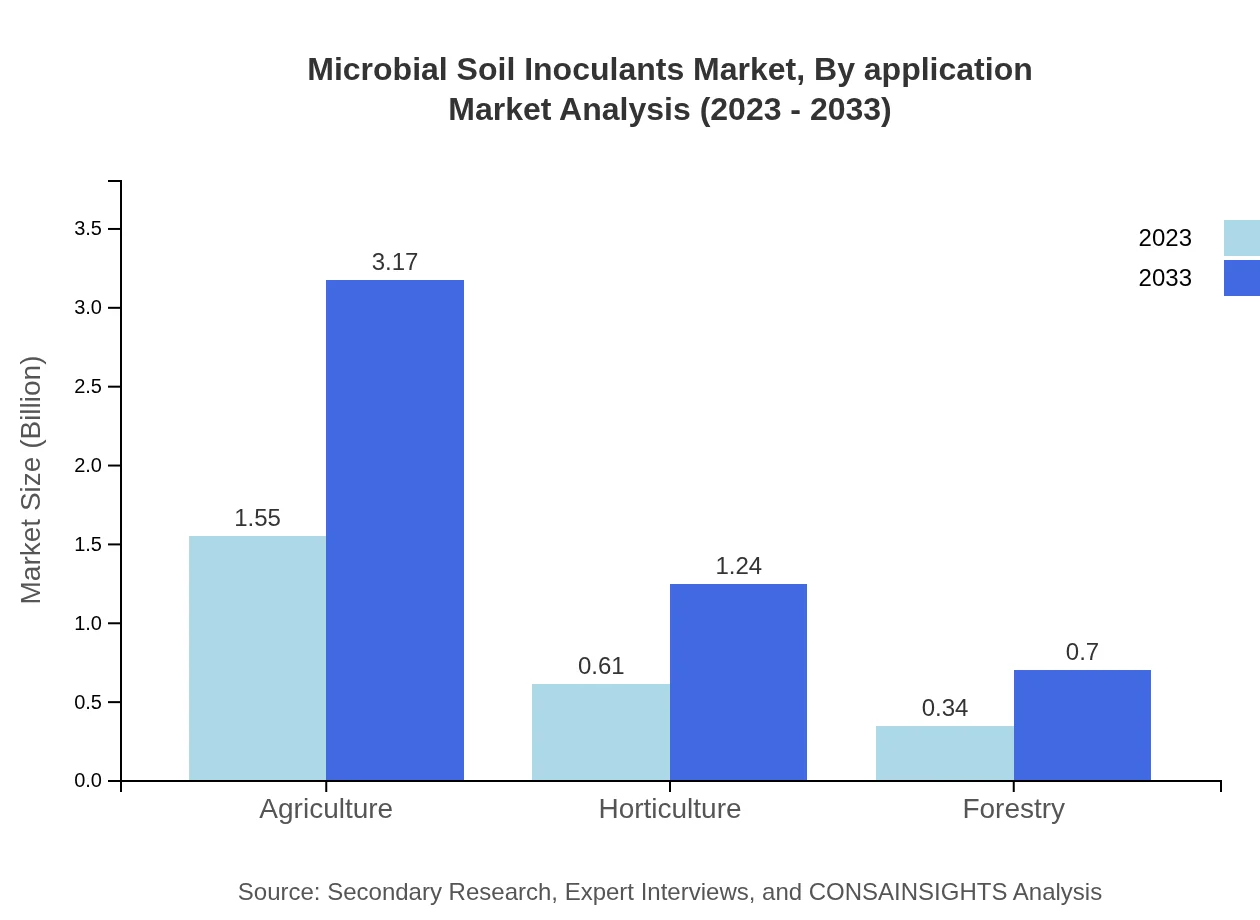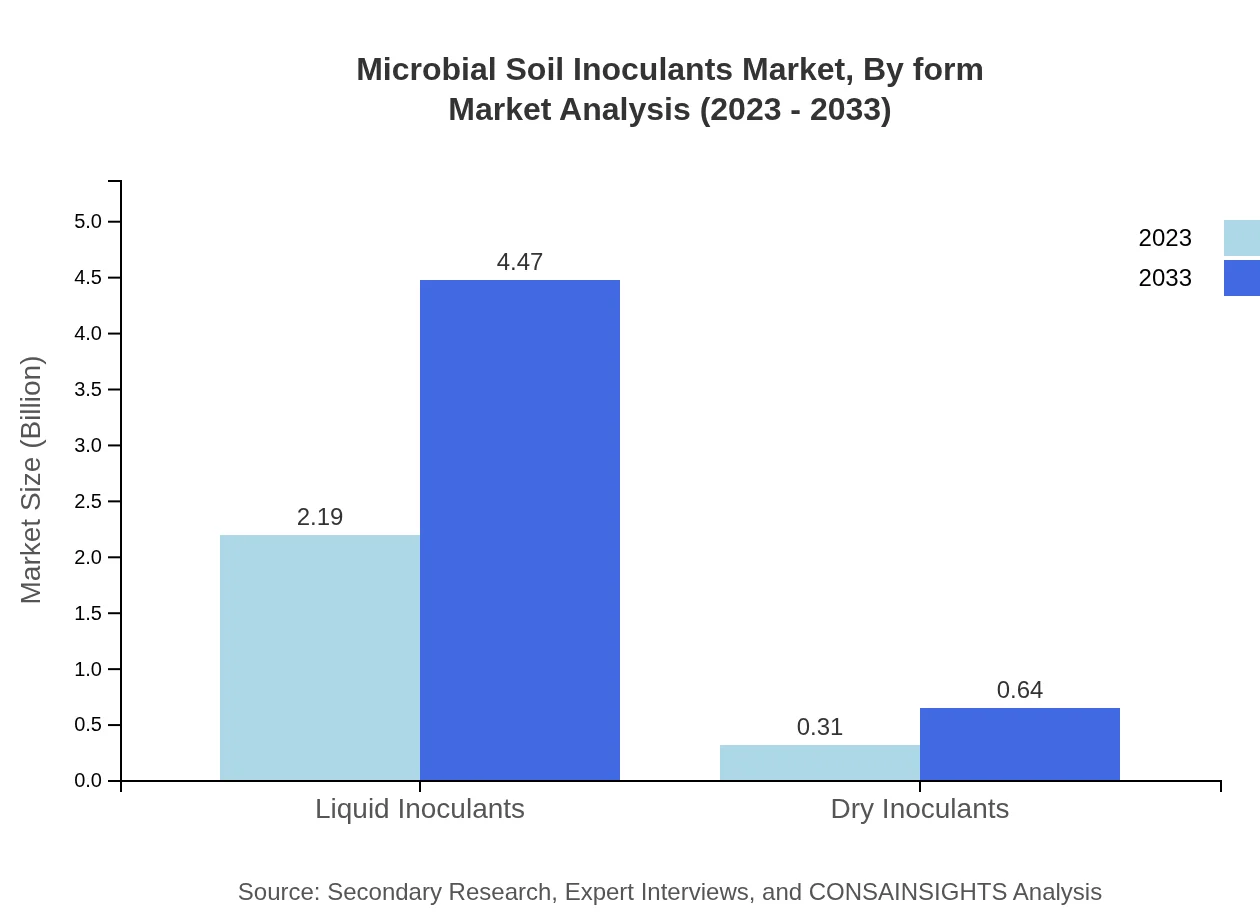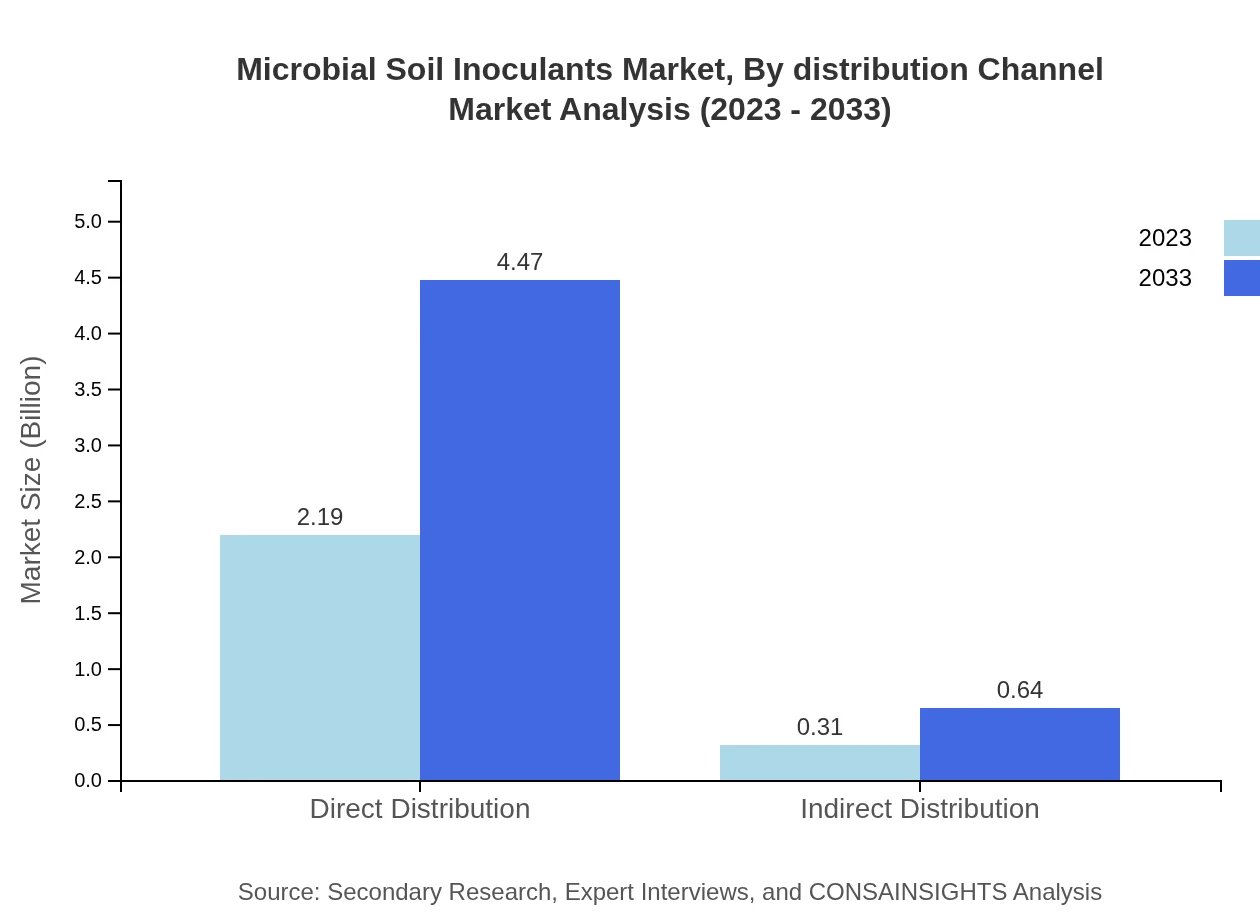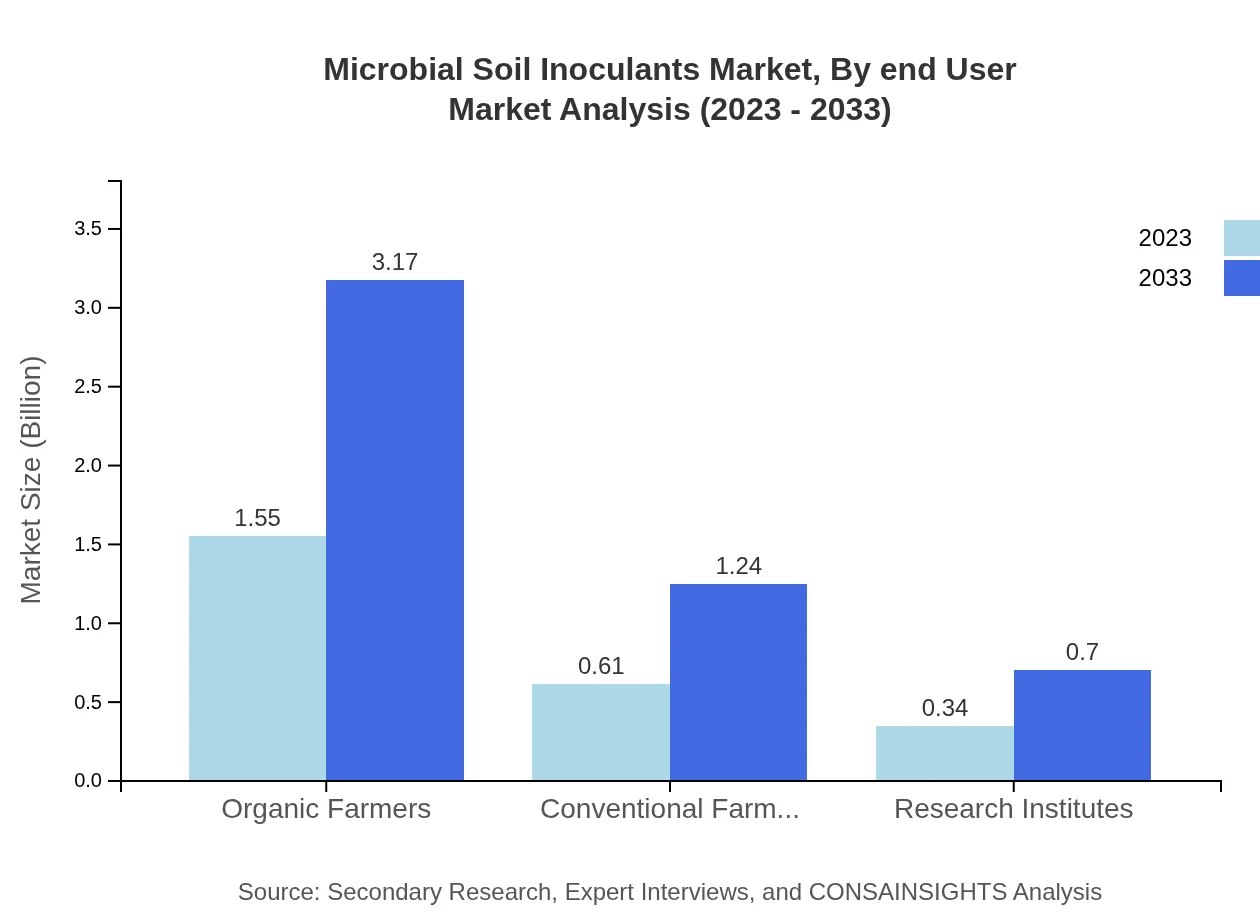Microbial Soil Inoculants Market Report
Published Date: 02 February 2026 | Report Code: microbial-soil-inoculants
Microbial Soil Inoculants Market Size, Share, Industry Trends and Forecast to 2033
This report provides a comprehensive analysis of the Microbial Soil Inoculants market, covering key insights, market trends, and forecasts for the period 2023 to 2033. It also explores regional dynamics, product types, and the leading companies shaping this industry.
| Metric | Value |
|---|---|
| Study Period | 2023 - 2033 |
| 2023 Market Size | $2.50 Billion |
| CAGR (2023-2033) | 7.2% |
| 2033 Market Size | $5.11 Billion |
| Top Companies | Bayer Cropscience, Novozymes, BASF, Syngenta |
| Last Modified Date | 02 February 2026 |
Microbial Soil Inoculants Market Overview
Customize Microbial Soil Inoculants Market Report market research report
- ✔ Get in-depth analysis of Microbial Soil Inoculants market size, growth, and forecasts.
- ✔ Understand Microbial Soil Inoculants's regional dynamics and industry-specific trends.
- ✔ Identify potential applications, end-user demand, and growth segments in Microbial Soil Inoculants
What is the Market Size & CAGR of Microbial Soil Inoculants market in 2023?
Microbial Soil Inoculants Industry Analysis
Microbial Soil Inoculants Market Segmentation and Scope
Tell us your focus area and get a customized research report.
Microbial Soil Inoculants Market Analysis Report by Region
Europe Microbial Soil Inoculants Market Report:
Europe is forecasted to grow from $0.81 billion in 2023 to $1.66 billion by 2033 due to stringent regulations on chemical fertilizers and a strong emphasis on organic farming practices.Asia Pacific Microbial Soil Inoculants Market Report:
The Asia Pacific region is witnessing robust growth in the microbial soil inoculants market, with an expected rise from $0.48 billion in 2023 to $0.98 billion by 2033. This growth is driven by the increasing adoption of sustainable agricultural practices and significant crop production in countries like India and China.North America Microbial Soil Inoculants Market Report:
North America holds a significant portion of the market, expected to increase from $0.82 billion in 2023 to $1.68 billion in 2033. Rising awareness about soil health and the environmental impact of traditional fertilizers is driving growth in this region.South America Microbial Soil Inoculants Market Report:
In South America, the market for microbial soil inoculants is projected to grow from $0.06 billion in 2023 to $0.12 billion by 2033. The agricultural sector is expanding, with an emphasis on organic farming, thus supporting demand for microbial solutions.Middle East & Africa Microbial Soil Inoculants Market Report:
The Middle East and Africa market is projected to reach $0.68 billion by 2033, growing from $0.33 billion in 2023. This growth is fueled by increasing agricultural activities and a shift towards sustainable farming practices.Tell us your focus area and get a customized research report.
Microbial Soil Inoculants Market Analysis By Product
In terms of products, liquid inoculants dominate the market, expected to grow from $2.19 billion in 2023 to $4.47 billion by 2033, maintaining an 87.55% market share. Dry inoculants, although smaller, are projected to grow from $0.31 billion to $0.64 billion by 2033, contributing 12.45% to the market.
Microbial Soil Inoculants Market Analysis By Application
The agriculture segment is leading with a market size of $1.55 billion in 2023 and expected to reach $3.17 billion by 2033, reflecting a 62.08% market share. Horticulture and forestry are growing segments, estimated at $0.61 billion and $0.34 billion, respectively, signaling increasing diversification in application.
Microbial Soil Inoculants Market Analysis By Form
Liquid forms are prevalent in the market, representing 87.55% of total sales in 2023, while dry forms are becoming more significant as formulations enhance usability and effectiveness.
Microbial Soil Inoculants Market Analysis By Distribution Channel
Direct distribution channels account for a major share of the market at 87.55%, facilitating better communication and support for farmers. Indirect channels, although smaller, are expanding as online sales grow.
Microbial Soil Inoculants Market Analysis By End User
Organic farmers constitute the largest group of end-users, expected to grow from $1.55 billion to $3.17 billion by 2033, while the conventional farming segment remains significant with growth from $0.61 billion to $1.24 billion.
Microbial Soil Inoculants Market Trends and Future Forecast
Tell us your focus area and get a customized research report.
Global Market Leaders and Top Companies in Microbial Soil Inoculants Industry
Bayer Cropscience:
A key player in the agricultural input sector, offering various microbial inoculants to improve soil health and crop yields.Novozymes:
Renowned for its innovative bio-based solutions, Novozymes specializes in microbial products that enhance soil fertility and agricultural performance.BASF:
A leading chemical company with a strong emphasis on sustainability, BASF offers microbial solutions that promote environmentally friendly farming.Syngenta:
Syngenta focuses on sustainable agriculture, providing a range of microbial inoculants designed to maximize crop production and soil health.We're grateful to work with incredible clients.









FAQs
What is the market size of microbial Soil Inoculants?
The global microbial soil inoculants market is valued at approximately $2.5 billion in 2023. It is projected to grow at a CAGR of 7.2%, forecasted to reach substantial heights by 2033, reflecting a robust expansion in agricultural practices.
What are the key market players or companies in this microbial Soil Inoculants industry?
Key players in the microbial soil inoculants market include major agricultural biotechnology firms, but specific names haven't been disclosed. Their contributions shape market evolution through innovative products and strategic partnerships that enhance crop yields and sustainability.
What are the primary factors driving the growth in the microbial Soil Inoculants industry?
Growth drivers of the microbial soil inoculants market include increased agricultural productivity demands, rising organic farming practices, and regulatory backing for sustainable agricultural practices. Additionally, consumer preferences for chemical-free products are propelling market innovations.
Which region is the fastest Growing in the microbial Soil Inoculants?
Asia Pacific is the fastest-growing region for microbial soil inoculants. The market is projected to rise from $0.48 billion in 2023 to $0.98 billion by 2033, reflecting the region's increasing agricultural activities and demand for sustainable farming solutions.
Does ConsaInsights provide customized market report data for the microbial Soil Inoculants industry?
Yes, ConsaInsights offers customized market report data tailored for the microbial soil inoculants industry. Clients can access specific insights and data points that cater to their strategic needs, enabling informed decision-making and market positioning.
What deliverables can I expect from this microbial Soil Inoculants market research project?
Expect comprehensive deliverables, including detailed market analysis, growth forecasts, competitive landscape assessments, and insights on key drivers and challenges. The report will provide sector-wise breakdowns and regional analyses essential for strategic planning.
What are the market trends of microbial soil inoculants?
Market trends indicate a growing preference for liquid inoculants, capturing over 87% market share. Furthermore, increased adoption among organic farmers reflects a shift towards environmentally sustainable agriculture. The rise of research-driven agricultural techniques also fosters market expansion.

